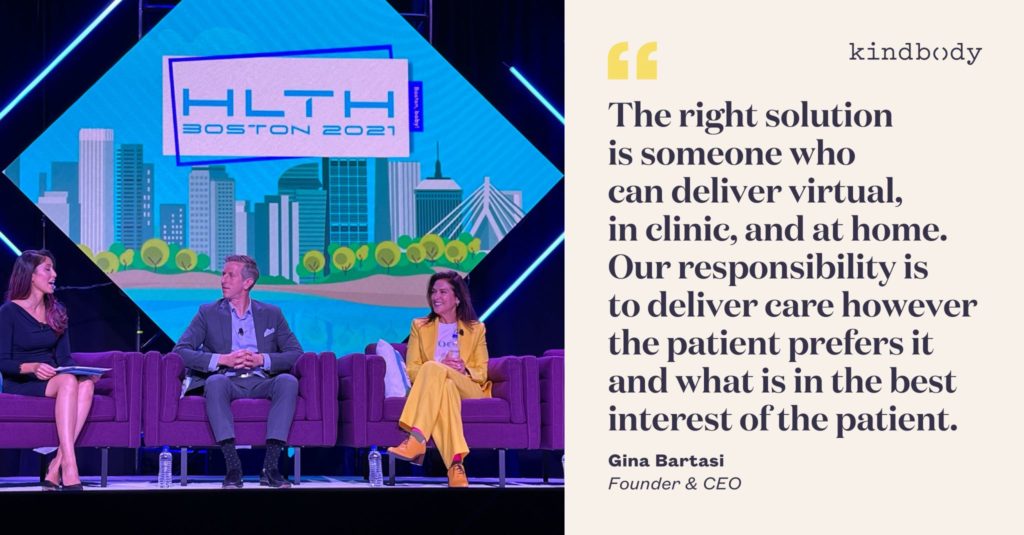HLTH21 has come and gone, but what has stayed with us after this monumental event is the sheer quantity of things on the minds of healthcare industry leaders. With over 100 sessions and 15 main themes, there was no lack of quality content and conversation. One of the key topics for discussion in high demand was the track for Health’s Consumer Playbook.
It has been no secret that health consumers are demanding dramatic change to the care experiences that have previously just been accepted as “the way things are” when reaching out for care. As HLTH has noted, today’s consumer is “no longer willing to blindly pay for medications, trust a first opinion or inconvenience themselves to meet their growing health needs.” So how are our healthcare leaders tackling this monumental change in consumer attitude and demand? Is it even possible to exceed these high expectations while maintaining an ROI that exceeds the expectations of a CFO?
In one of the more engaging panels in the Health’s Consumer Playbook track, moderator Stephanie Davis, Senior Equity Research Analyst at SVB Leerink, talks to CEOs of pioneering startups on how they are stepping up to the challenge set by the next generation of health consumers.
So who are these new healthcare consumers? According to HLTH, people born between 1981-1996 have surged to make up more than 50% of the US workforce leading to a much younger population falling under employer-sponsored health plans. This generation wants more accessible, convenient care options that work around their schedule. They prefer to schedule appointments, pay copays and chat with their doctors, all from the palm of their hand, wherever and whenever is convenient for them. The industry, rooted in antiquated call centers and telephone tag lag time, is now flooded with millennial expectations and demands for enhanced patient experiences and a call to action to find a solution that can meet the needs of this new consumer.

With the market demand for enhanced services, better quality care, state-of-the-art technology, it would be no surprise if benefits buyers are assuming that with a higher quality solution would come higher costs. Interestingly, the panel went into how the opposite is the case when implemented effectively. Using ultra-modern technology, solutions can offer a more premium experience at a lower price tag by replacing all transactional things historically managed by humans, like scheduling appointments and making copay payments, and create a strong value proposition and high ROI.
“You have to move away from fee for service, not just in fertility but in other pockets of care, towards a bundled case rate, and then after you establish that bundled case rate, we know what the next iteration of healthcare is – it’s going at risk,” said Gina Bartasi, Founder & CEO of Kindbody. There are three things that matter in healthcare – cost, quality, and member experience. One major takeaway from this panel was that to effectuate change in any of these areas, and to get to that next interaction and taking the risk, you have to be in the provision of care.